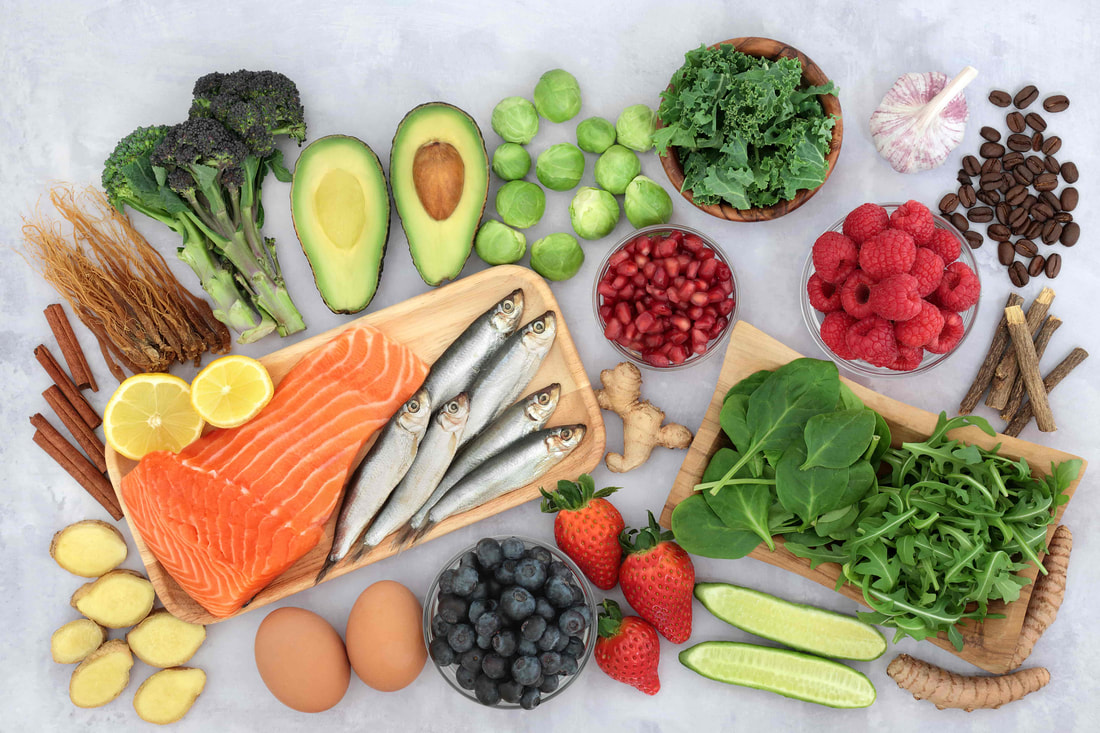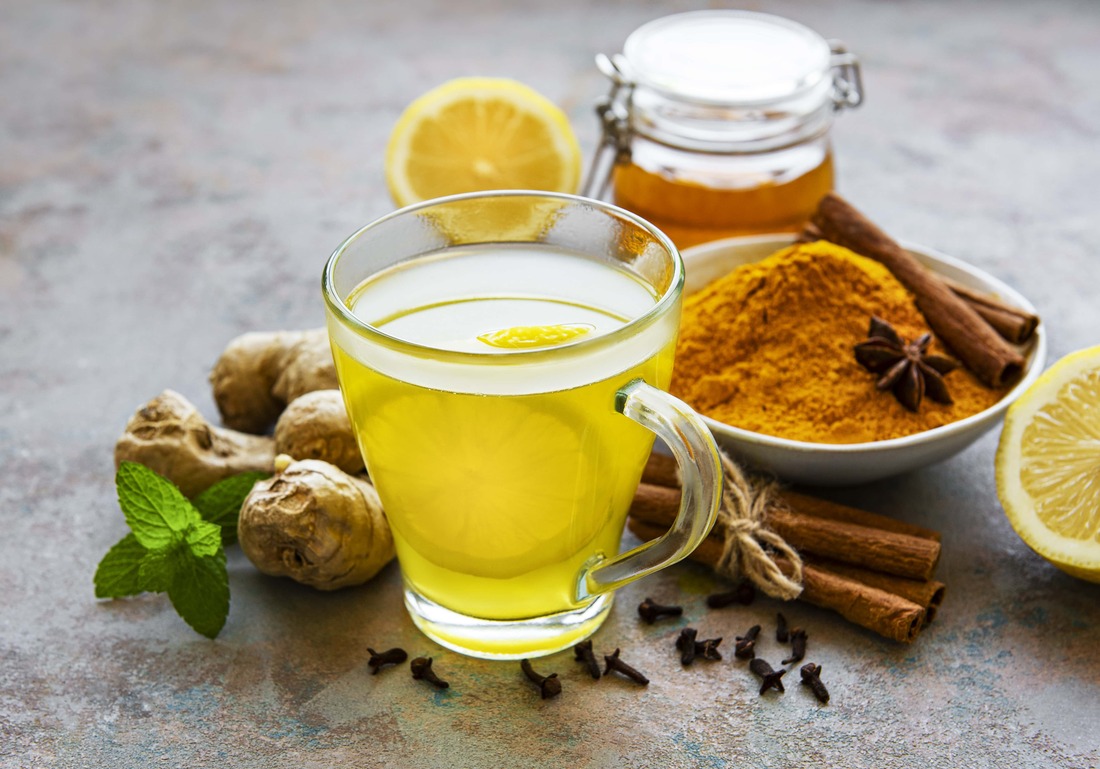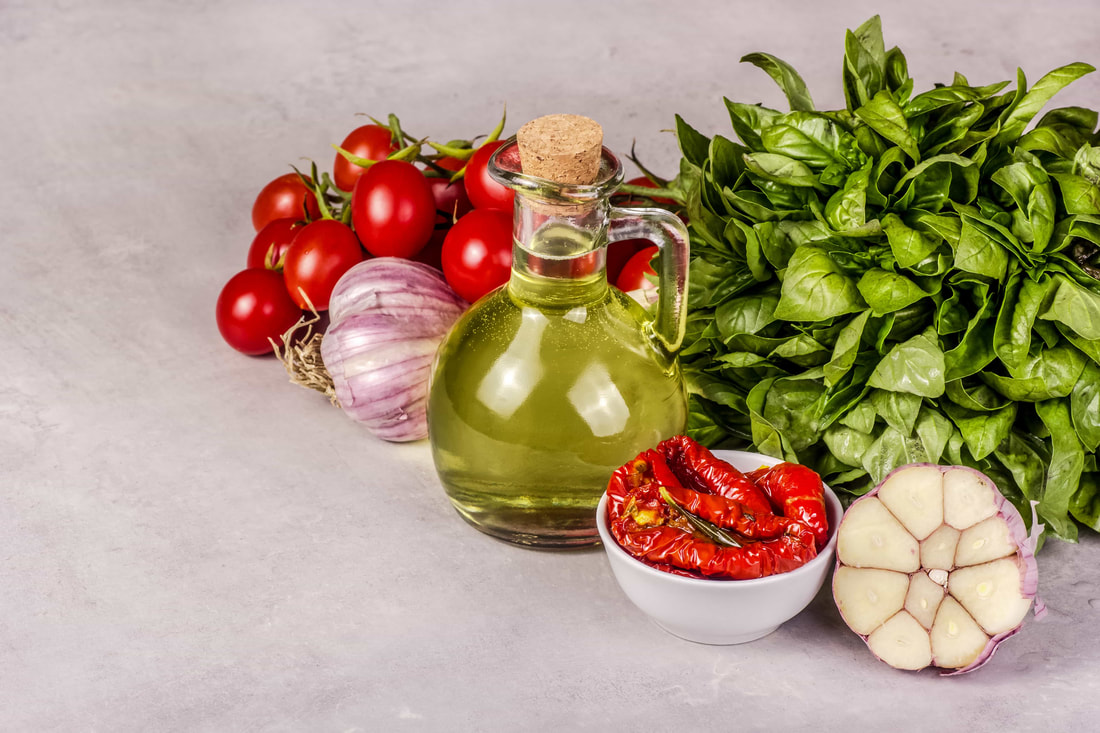|
Inflammation is something we hear a lot about, but where does it come from? Inflammation happens when a physical factor triggers an immune reaction; it is actually the body's normal response to injury or illness. However, when it persists over an extended period of time, it can cause a variety of health issues. Over time, chronic inflammation can trigger your immune system to attack healthy tissue and organs in your body which can increase your risk for diseases such as diabetes, cancer, and rheumatoid arthritis. Inflammation of any body part can usually be visually represented by one of the following five symptoms: redness, swelling, heat, pain, or loss of function. However, symptoms such as body discomfort, persistent fatigue, insomnia, and unexpected weight gain or loss can also signal potential inflammation. Since it is so common, there are many potential strategies to minimize inflammation in the body, but food is certainly one of the best. Before we dive in, I’d like to clarify the difference between antioxidant food and anti-inflammatory food. Antioxidants help to protect tissues from damage and prevent unwanted inflammatory bodily responses. Although the two obtain similar properties, antioxidants are best used for the prevention of inflammation while anti-inflammatory foods ensure a normal inflammatory response and also play a role in the resolution of present inflammation. What you eat is in your control and by making healthy choices, you can improve your body now and ensure its longevity. Here's a snapshot of some foods proven to lower inflammation in the body: Fatty fish Omega-3 fatty acids are abundant in fatty fish like salmon, mackerel, and sardines. It has been proven that they reduce inflammation and may also help lessen the risk of illness. Omega-3 fatty acids are not produced in the body, so it is essential that we consume them to prevent inflammation. Eating fatty fish at least twice weekly is recommended for optimal health benefits. Berries Antioxidants included in berries have anti-inflammatory properties. Great options for incorporating these into your diet include blackberries, raspberries, blueberries, and strawberries. They can be consumed frozen or fresh and added to yogurt, cereal, or smoothies. Leafy greens Leafy greens are a great source of vitamins, minerals, and antioxidants. A few examples include spinach, kale, and collard greens. Leafy greens also contain a lot of fiber, which could help digestion. Consider incorporating them into salads, smoothies, or even a side dish when sautéed. Turmeric Turmeric is a spice commonly used in Indian and Middle Eastern cuisine. It contains curcumin, a substance with potent anti-inflammatory properties. Adding turmeric to your meals or taking a curcumin supplement may help reduce inflammation. Ginger Another spice with anti-inflammatory qualities is ginger. Inflammation in the gut is especially well-controlled by it. Ginger can be used in cooking, tea, and smoothies. Nuts Nuts are chock full of healthy fats, fiber, and antioxidants. Some great additions to your diet would be almonds, walnuts, and pistachios. Nuts have been shown to lessen inflammation, and they might also aid in reducing the risk of illness. Try adding nuts to salads, yogurt, or oatmeal. Olive oil Olive oil is a healthy fat that is rich in antioxidants. It is easy to consume daily as it can be added to nearly any recipe. Try using olive oil in your daily cooking or as a salad dressing. Tomatoes Lycopene, an antioxidant found in abundance in tomatoes, has been demonstrated to lessen inflammation in the body. They contain a lot of vitamin C which is necessary for a strong immune system. Tomatoes can be eaten fresh or cooked and added to soups, stews, or sauces. Garlic Allicin, a substance found in garlic, has been demonstrated to have anti-inflammatory properties. Similar to olive oil, garlic is another extremely easy addition to your diet since it can be used in most lunch and dinner recipes to add some extra flavor. Try adding garlic to your meals or taking a garlic supplement. Dark chocolate Dark chocolate is rich in antioxidants and magnesium. Magnesium is necessary for strong bones and muscles which goes hand in hand with growing stronger by reducing inflammation. For the best health results, choose dark chocolate with at least 70% cocoa content. Even if you are not currently experiencing inflammation in your body, including the foods above in your weekly diet can make a big difference in the future. You might prevent or reduce inflammation and potentially minimize your risk of sickness. It's crucial to keep in mind that a balanced diet should consist of a variety of foods. Rather than focusing strictly on the implementation of one category, try to disperse these foods in your meal plan throughout the week. Next time you feel inflammation coming on, don’t just open up the medicine cabinet and reach for an ibuprofen. Instead, take a trip to the fridge or pantry and see if any of the foods listed above can do the trick over time. However, if you have any serious concerns about your health, it's always best to consult your healthcare professional.
Claudia is an NBC-HWC Board Certified Health and Wellness Coach, the owner of Vibrant Health by Claudia LLC and Virtual Health Coaches LLC. She studied Health and Wellness Coaching at the Institute for Integrative Nutrition where she also completed courses in Gut Health, Hormone Health, and Advanced Coaching. She is a certified 21-Day Sugar Detox Coach as well as a co-author of two Amazon Bestsellers “The Ultimate Guide to creating your soul aligned Business” and “The Ultimate Guide to Becoming a successful soul professional”. To schedule a time for a free information call click here or join her Vibrant Health Power Community - a free Facebook Group - here.
0 Comments
Leave a Reply. |
take control of your health.Connect with a board certified coach to help you succeed with health changes. COACHES:
|






